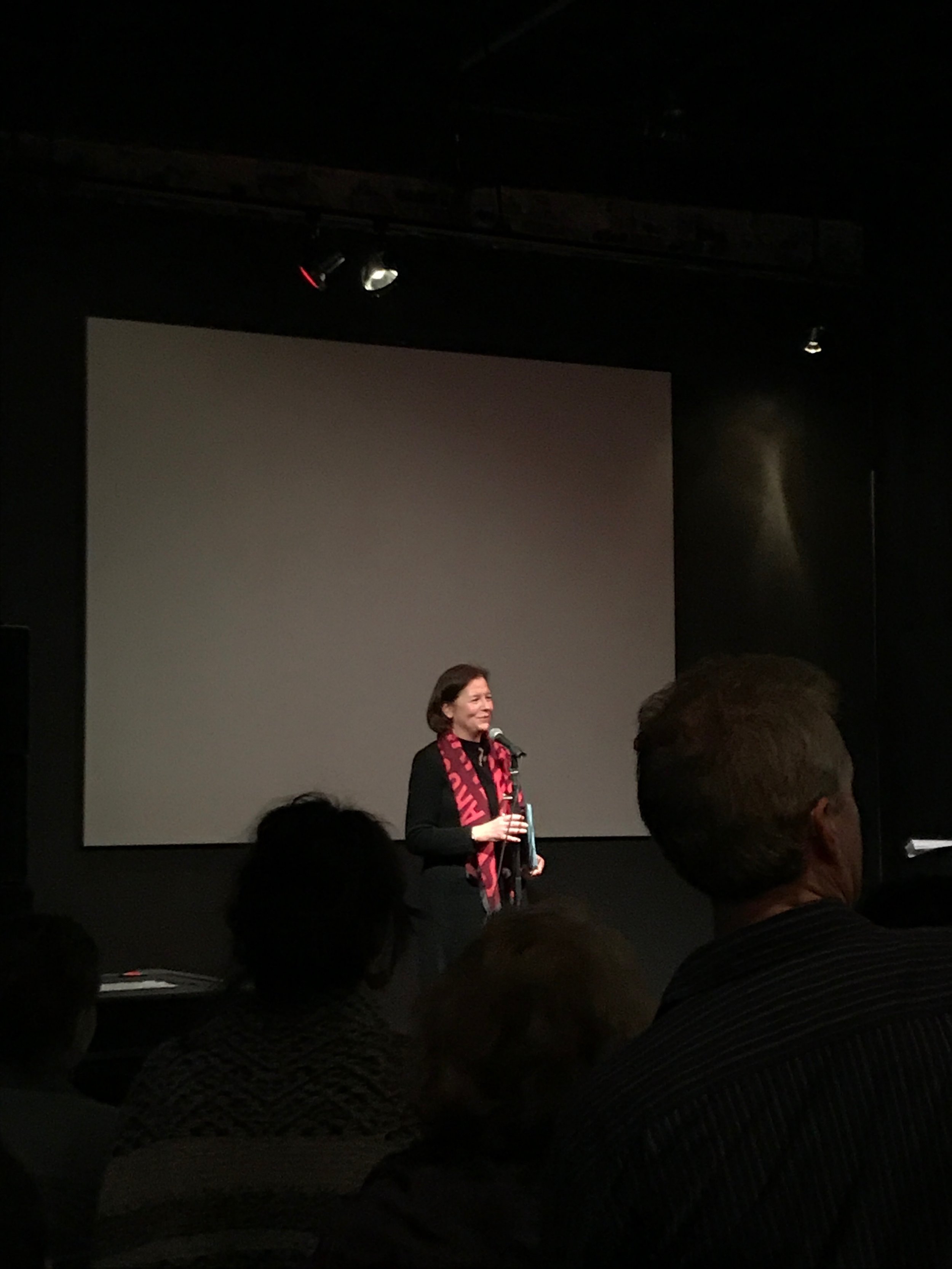Tell-All Boston Literary Series Premieres, Focusing on Memoir
By Jessica A. Kent
Oct. 26, 2018
The line of people trailed from the doors of the Middlesex Lounge, across the front of the building, and down the block. “Is this the line for the reading?” new arrivals would ask before heading to take their place. They seemed surprised that a literary event would garner a long line waiting for the doors to open, but such was the launch of Tell-All Boston, the area’s newest literary series, which premiered on Thursday, October 18. The focus of the evening? Memoir.
The audience of around 100 people, perched upon benches, sitting upon the floor, standing a few people deep at the bar, heard from Deborah Schifter, Beya Jimenez, Angie Chatman, and Norman Belanger, with special guest Joan Wickersham, who each read a short piece. The event was co-hosted by Mike Sinert and Alysia Abbott.
“There’s nothing like true stories read live, and that’s really an important voice we wanted to bring forth,” said Sinert, who was also one of the organizers of the event.
Tell-All Boston was created by the alumni of GrubStreet’s Memoir Incubator, a year-long MFA-level course open to ten writers who workshop each other’s material, study the craft of writing, and gain real-life introductions to the literary market. Sinert himself is a graduate of the Memoir Incubator program, now in its sixth year, and developed his memoir-in-progress, STUFFED: All the Things I Ate and Why, within the walls of GrubStreet and with the help of that community.
Abbott, who teaches the Memoir Incubator and whose own book, Fairyland: A Memoir of My Father, was released in 2013, explained that while the longer-running Novel Incubator has a solidified community already - a literary series, a blog - she and the graduates of the Memoir Incubator wanted the same. But the intention isn’t to keep it a GrubStreet thing. “Part of what was really exciting about tonight was that we had new writers coming together, and bringing with them new audiences,” Abbott observed. She also stated that the desire for the series is to bridge the various writing circles and programs in the city to lift up the great memoir community of the area. And Tell-All Boston would be the first literary series devoted solely to memoir in the city.
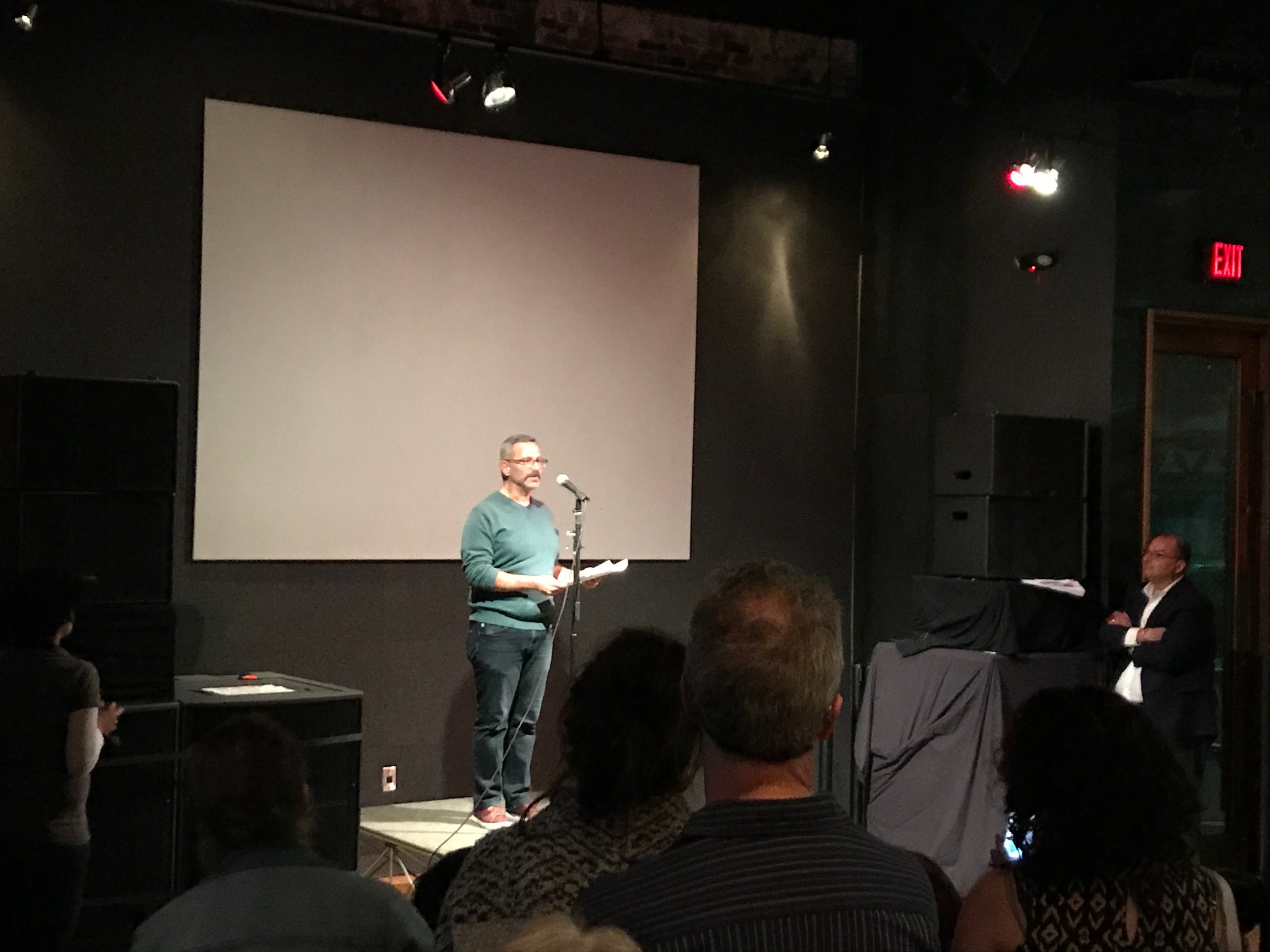
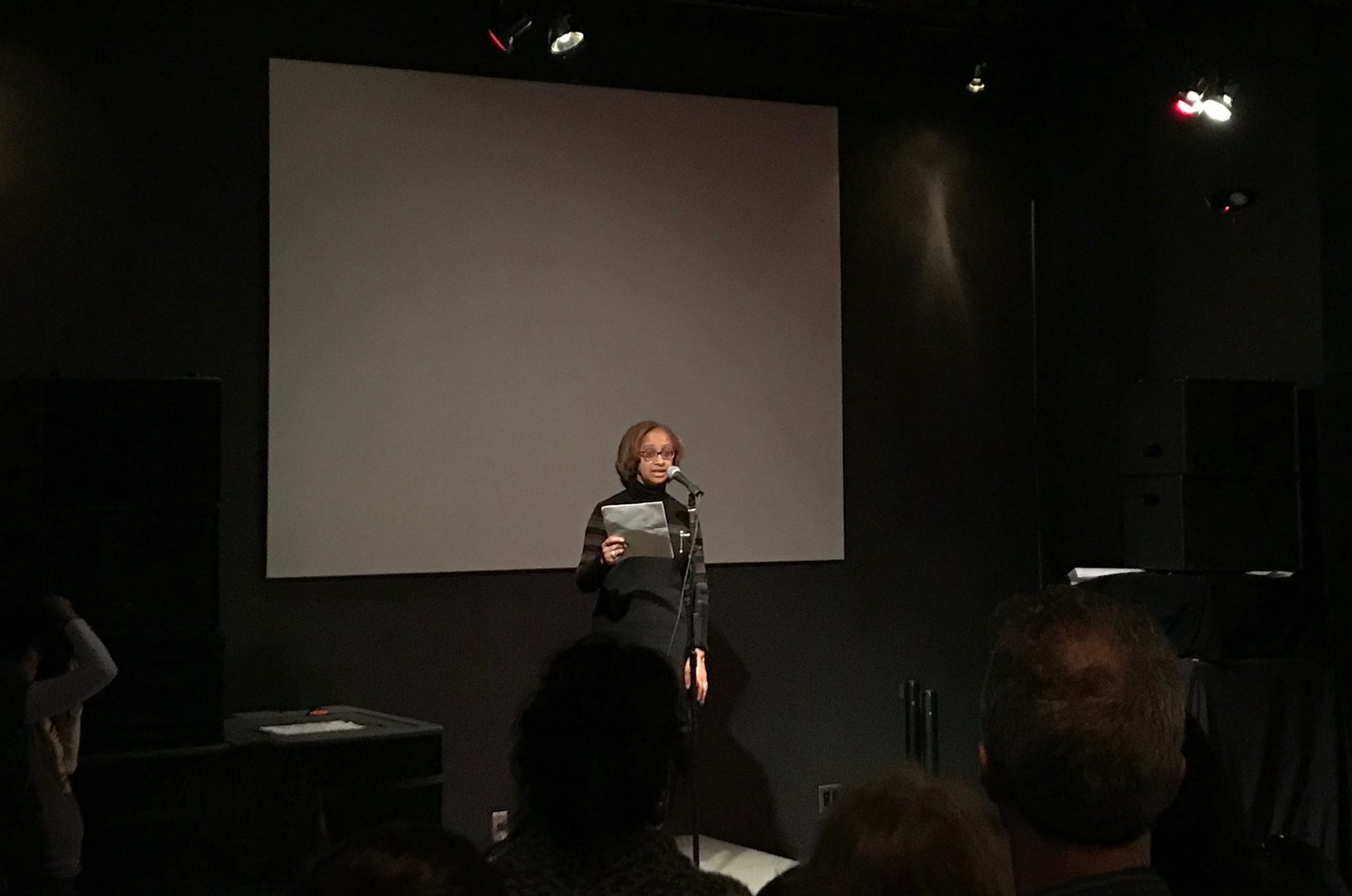
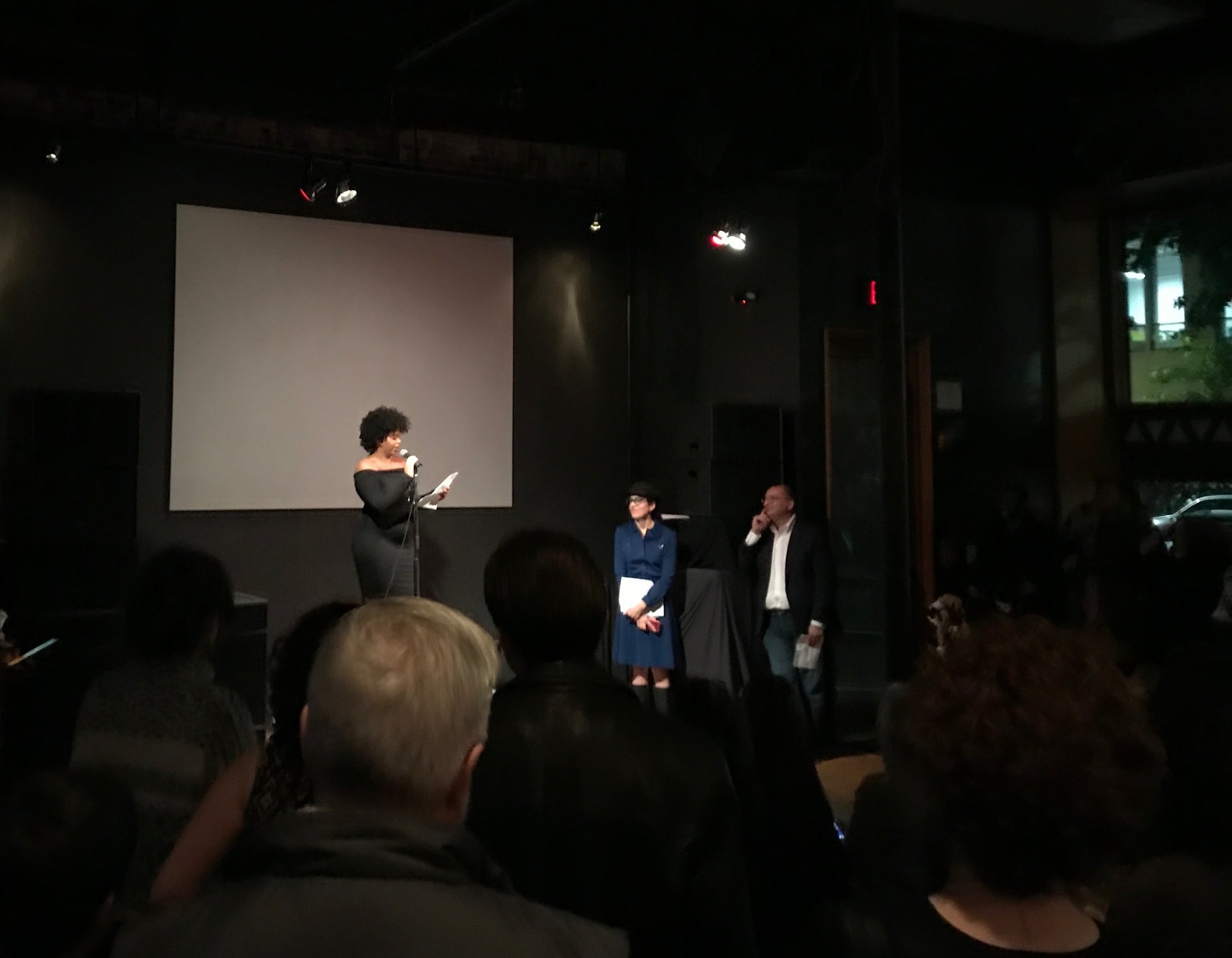
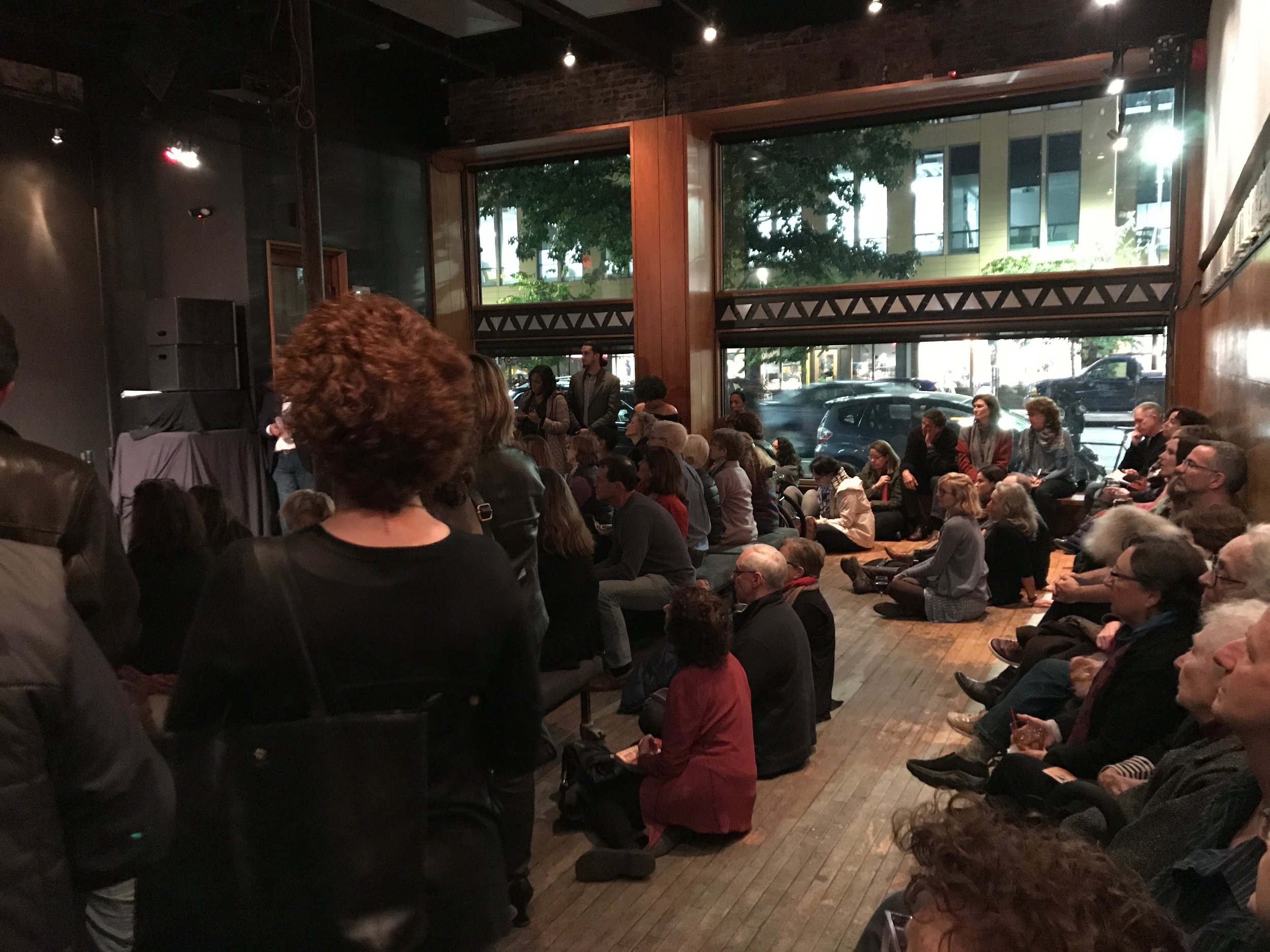
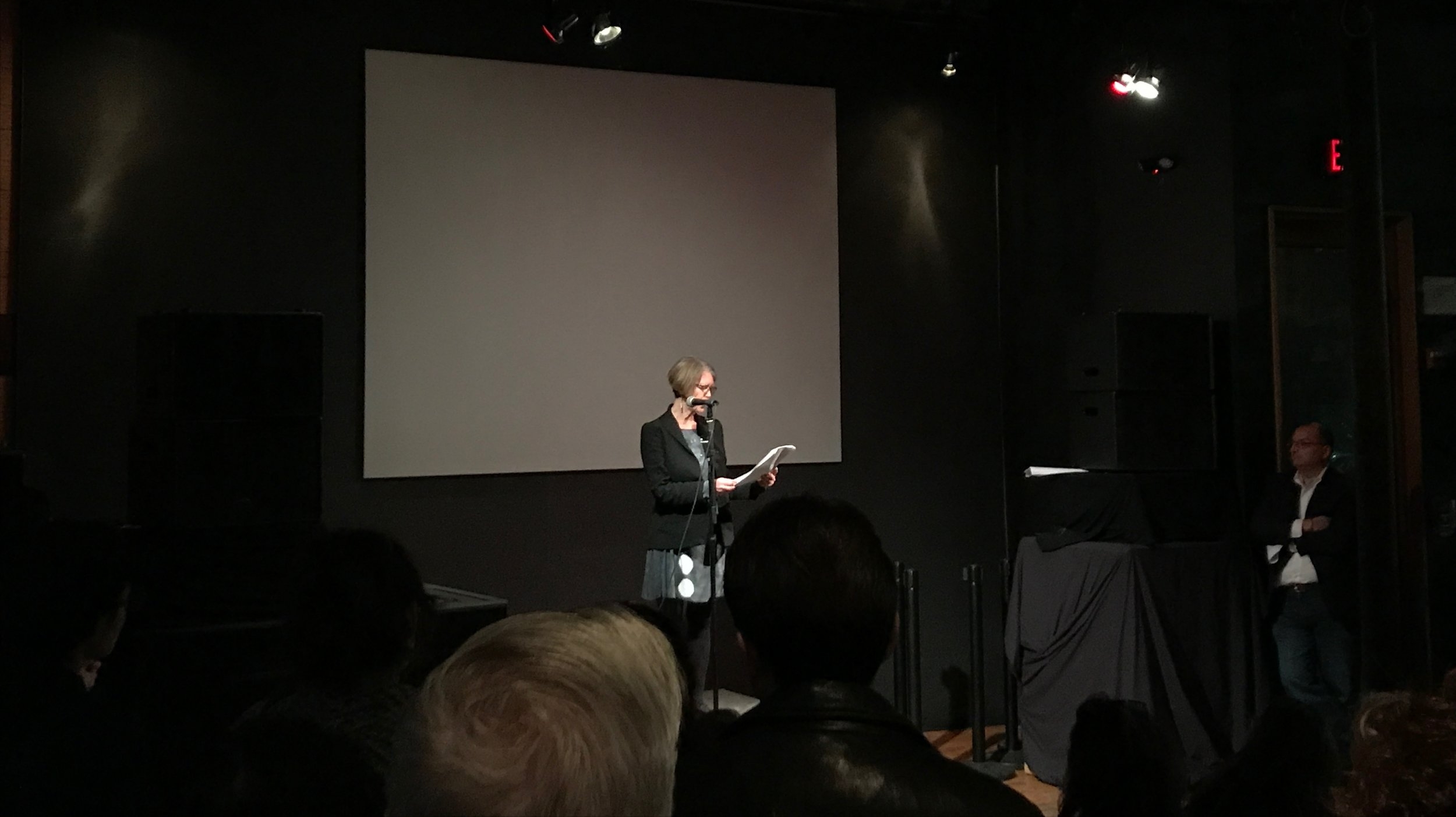
As each author took the stage, they creatively shared their own varied experiences: Deborah Schifter told the story of her mother trying to hide her German ancestry at the Jewish nursing home she resides in; Beya Jimenez told the story of her drastic attempts at straightening and changing her natural hair until she realized that it was part of her ancestry; Angie Chatman told the story of living abroad in Africa and attempting to grow corn as a way to remember home; and Norman Belanger told the story of coming out to his mother through allusions to The Fountainhead. Joan Wickersham intended to read from her memoir The Suicide Index: Putting My Father's Death in Order, but decided to share from a new project inspired by the wreck of the Vasa, short memoir-esque vignettes tying items and observances from the ship and its museum to elements of her own everyday life.
Interestingly, the thread that ran through each narrative was the idea of discovered, uncovered, or recovered identity. That ability to share a truth about one’s identity, and for the audience to find a connection there, is why memoir is important today. “There’s something really wonderful about having people be able to tell their own stories in their own words, and be heard and supported by other people,” Abbott explained. Using an example from one of the readers that evening, which focused on acknowledging and embracing one’s cultural identity, Abbott pointed out that if you don’t have that experience personally, you would never know its struggle - which is why we need to hear those individual narratives that we can’t know, in order to gain compassion. It’s about “building understanding through sharing stories,” she affirmed.
Sinert elaborated: “There’s something really powerful in not only finding your own truth, but writing your own truth. That helps you connect to others who might learn something from your truth, or might be able to connect with you because you might speak to them.”
The hope is that Tell-All Boston will be a place for both established and up-and-coming writers. Both Sinert and Abbott feel it is important to give space to newer writers who are still attempting to find their voice, and who may not have had the opportunity to share their work before. “Writing is a long game,” Abbott said about the need for this series. “You might have years of development [of your work], and in that process you need to have a network of people to support you and feel inspired by. Being a writer is about being a literary citizen, supporting other writers and making other writers’ writing happen.”
More information, including longer bios of the authors, can be found on the Tell-All Boston website. Submissions are now open for future readings. The next event will take place on January 17, 2019, with special guest Garrard Conley, who previously taught the Memoir Incubator, and whose book, Boy Erased: A Memoir, is being made into a feature film.

